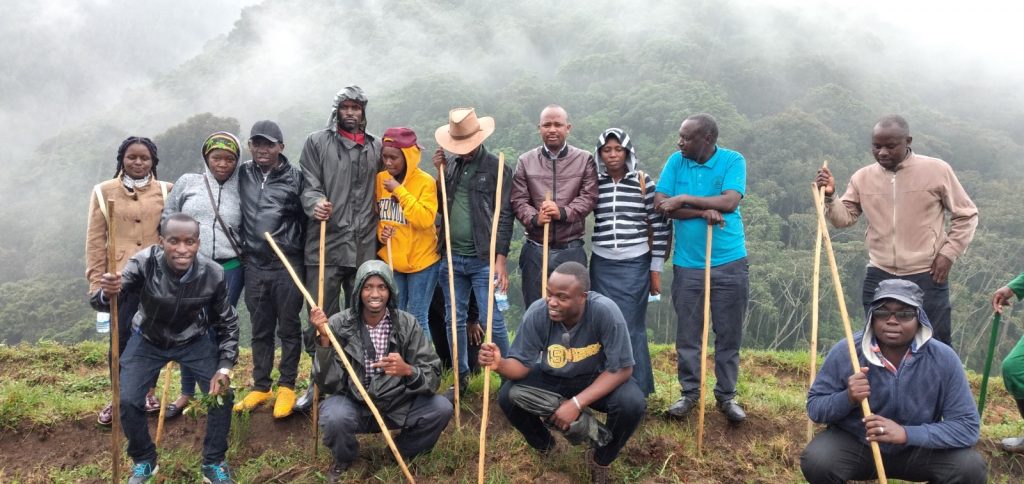All species on earth, including humans, depend on the services provided by other species to survive. This biological diversity provides the resources necessary to maintain the healthy systems we need to thrive. Harmful activities such as hunting can have serious consequences on the environment since natural ecosystems are interconnected and interdependent.
35-year old Rwandan entrepreneur Ange Imanishimwe, who is also a 2016 alumni of the Tony Elumelu Foundation Entrepreneurship Programme, co-founded and serves as the Executive Director of Biodiversity Conservation Organisation (BIOCOOR), an organisation that integrates biodiversity conservation, community health, ecotourism, entrepreneurship, and sustainable development of the people around Nyungwe National Park, Rwanda.
In this interview with the Tony Elumelu Foundation, Ange shares his approach to maintaining a positive, holistic and beneficial interrelationship where humans contribute positively to sustainable development.
“My goal is to eradicate extreme poverty and malnutrition in Rwanda by creating 1,000 green jobs every year,” Ange says. “I grew up thinking that I owed young people something to make sure I can change the lives of the community in National Park, Rwanda.”
Ange, who is also a President Obama’s Mandela Washington Fellow, is providing opportunities for the ex-poachers, developing ecotourism businesses outside protected areas, and creating jobs through natural ecosystem restoration.
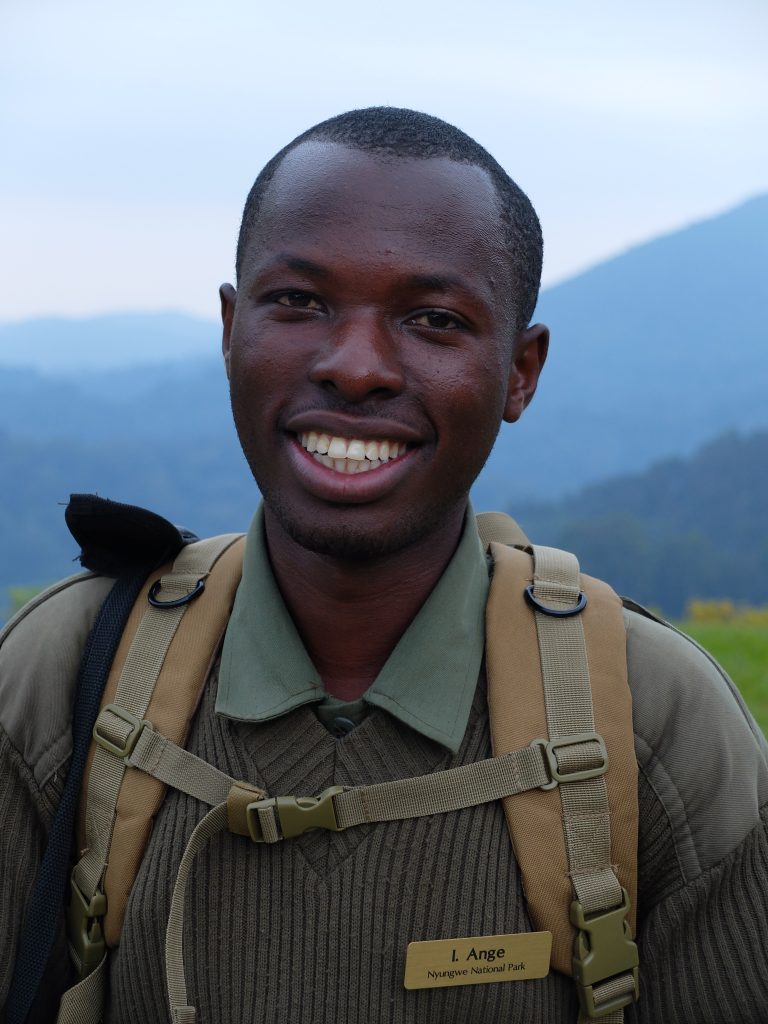
In a paper he co-authored, Ange explored the integration of biodiversity conservation and ecotourism development and its contribution to poverty alleviation around Nyungwe National Park in Rwanda, one of the largest African high altitude forests.
“I did biology in secondary school because I was interested in biodiversity. I didn’t start with any money. I started by convincing people to give us money, while emphasizing the ways that biodiversity can make spaces green and beautiful. In 2012, we negotiated $2000 from scratch, and that is how we started.”
Since then, Ange has made it his mission to convince people to change their minds and become the protectors of the national park.
For Ange, the Tony Elumelu Foundation’s Entrepreneurship Programme was important to the growth of the initiative.
“The seed funding we got from Tony Elumelu Foundation was very important to sustain what we are doing,” he says. “What I will do, and what I will keep doing, is to make sure that we can conserve our biodiversity and the community.
“We can end poaching in our ecosystems by developing the communities around protected areas. Because they do not have basic needs, my work is to make sure that I can create the basic opportunities so that they can have what they need and with that I am sure that there can be a win-win approach to conserving biodiversity. This is important because humans are a part of our biodiversity.”
Ange also highlights the need for public and private sector to recognise the dire need to sustain the ecosystem, especially as humans are largely dependent on it.
In Rwanda, despite the country’s conservation efforts, its biological diversity continues to face threats from habitat degradation, climate change, pollution, mining, and poaching.
“We started an education program on conserving urban biodiversity,” Ange also adds, highlighting that Biodiversity is not only for marked protected areas.
“The work done by birds, butterflies, and bees is very crucial to the ecosystem and even greater than the farmer’s work. There should be complementary effort between the people and biodiversity, especially considering the issue of climate change. It Is the responsibility of everyone to conserve biodiversity.”
Ange has cofounded a community-based ecotourism project Nyungwe EcoVillage dedicated to promoting ecotourism in Rwanda.
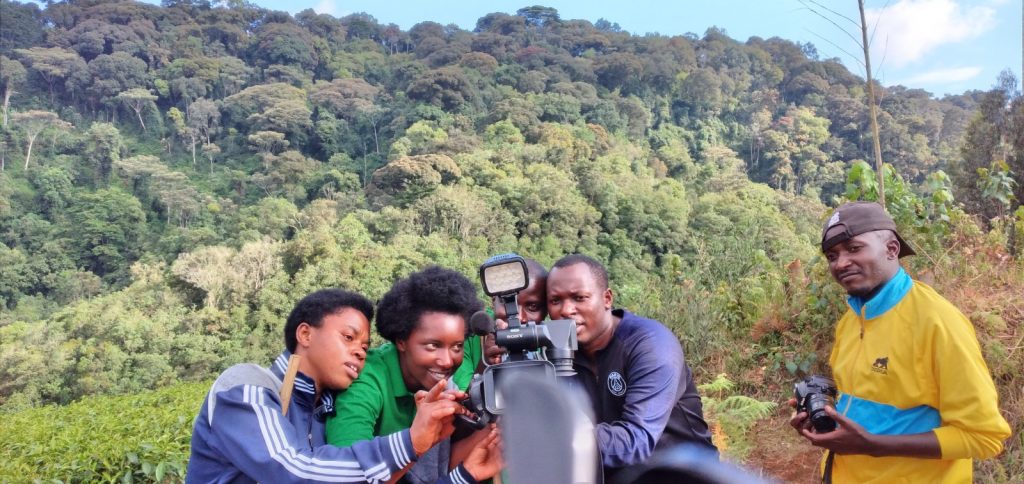
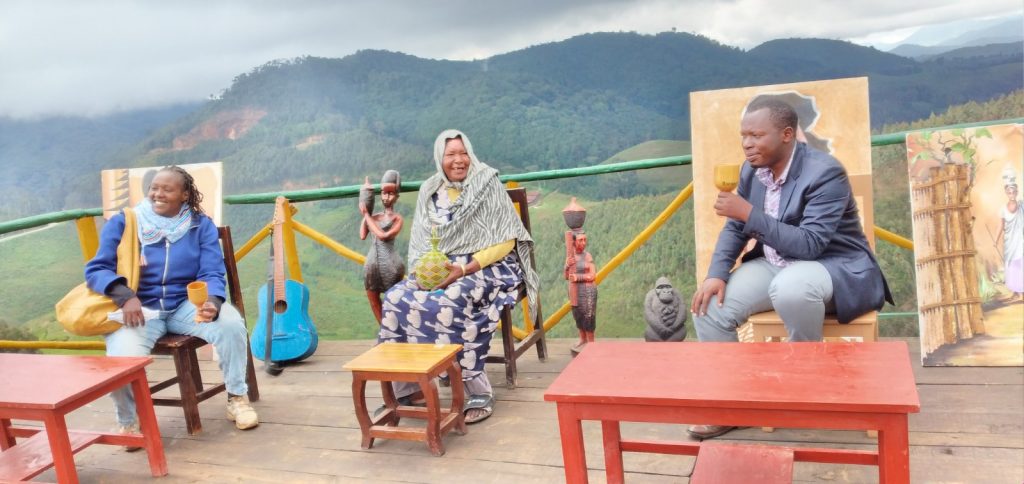
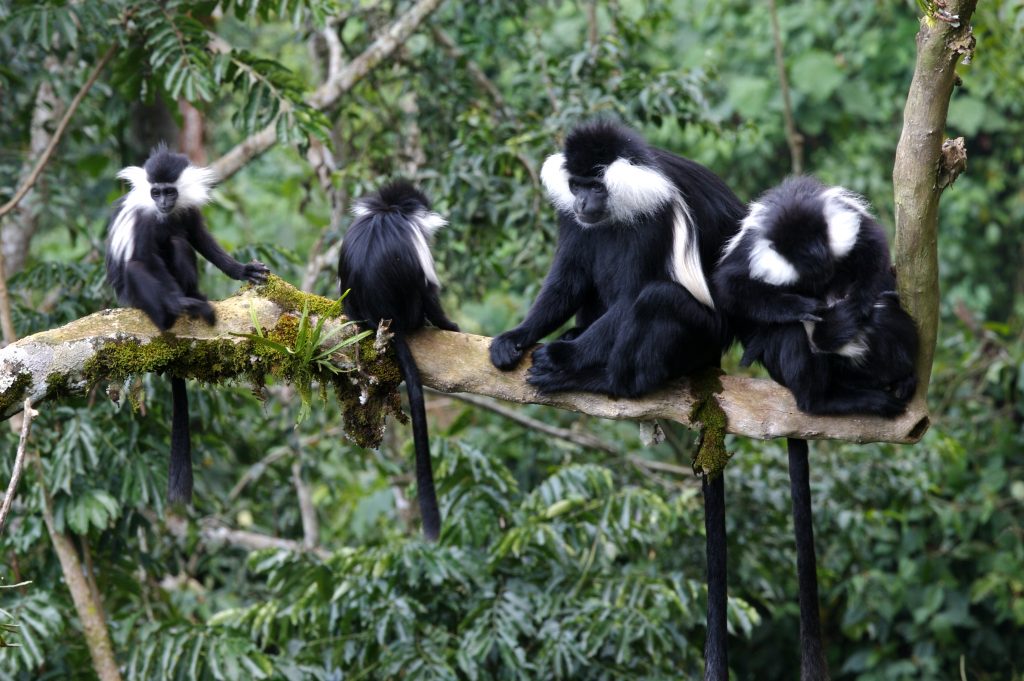
Covid-19 pandemic
With the Covid-19 restrictions and the lull in human activities, it was no surprise that the biodiversity was noticeably impacted. “The pandemic had some positive impact,” Ange says. “In our area, the weather was somewhat clean, and we saw animals walking about in town.”
“This is an opportunity to see how we can create initiatives for humans and wildlife to live in a way that is more beneficial to the other.
“Because humans are more intelligent than animals, we took the land of animals,” Ange says. “Houses being scattered everywhere is not a good strategy for living. Maybe we can have the strategy of reserving land for animals, instead of taking all the land for farms and people.
“We can explore land sharing – that is taking some percentage of land for conservation: so for example, we give 30% of land to the owner, and 70% to biodiversity and we implement ecotourism initiatives to incentivise people in those areas to protect these areas.
Ange believes that protected areas should play a role in sustaining local communities around them. And that ecotourism has the potential to generate sustainable local benefits that are beneficial for the community and ecosystem in the long run.
“In Africa, we are very rich in terms of natural resources, we should have the accountability to restore the ecosystems in order to conserve biological diversity.”
See more of Ange’s work in Nyungwe National Park in Rwanda
Ange’s vision for BIOCOOP is to place Rwanda on the level of middle-income countries by integrating biodiversity conservation, ecotourism, climate protection, community health, natural resources management, and sustainable development. Currently, his organisation’s efforts have created 27 permanent jobs and 1800 part-time jobs in his community.
He also launched the Dr Imanishimwe Conservation Leadership Center around Nyungwe National Park to inspire and empower more youths in the community by integrating leadership and entrepreneurship in biological sciences.
Ange is currently the Consultant of Biodiversity study and monitoring in Nyungwe National Park buffer zone. He plans to extend his projects in East Arica within the next 5 years and create 15,000 green jobs.


